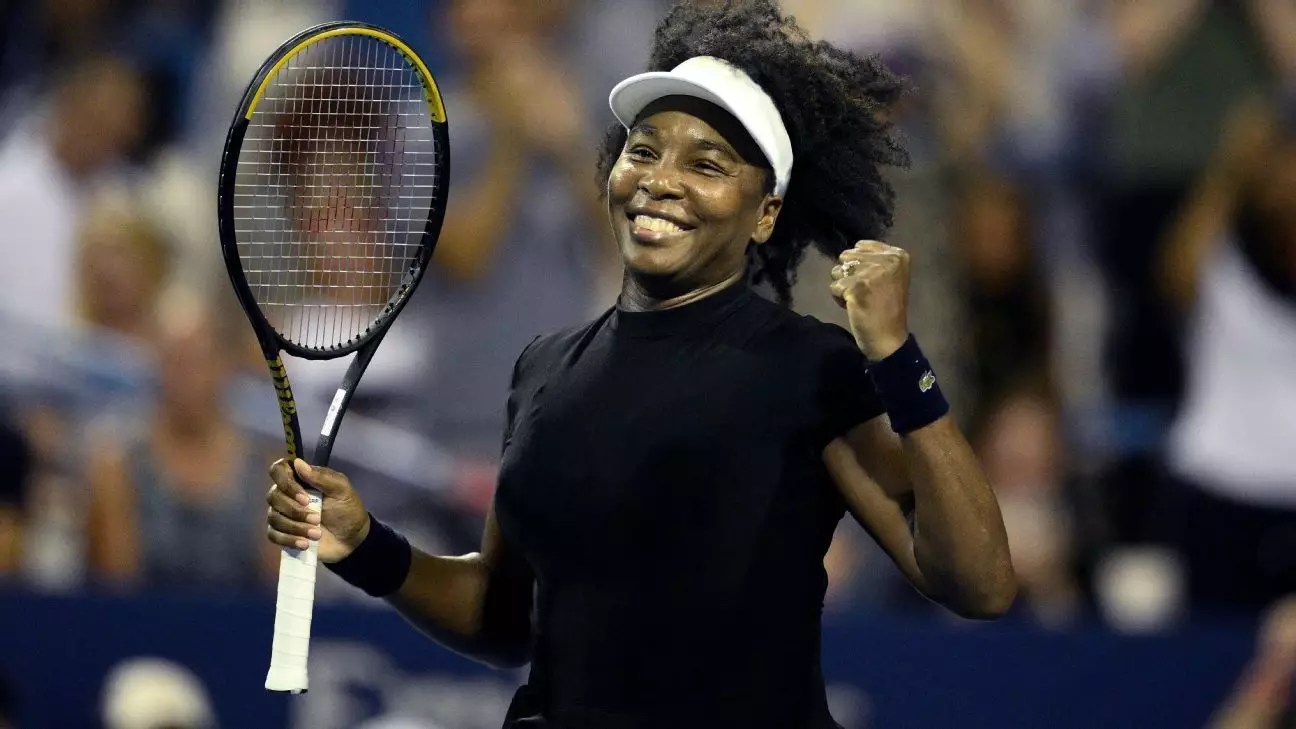Venus Williams’ recent victory at the DC Open is more than just a tennis win; it is a bold testament to resilience and unwavering passion. At 45 years old, Williams defied the relentless march of time and societal expectations that often push athletes into retirement, especially in a sport as physically demanding as tennis. Her triumph underscores a profound truth: age is, at best, a number, and determination can rewrite the narrative of decline. This victory, for many, symbolizes hope and a challenge to the stereotypes that aging diminishes excellence.
While the mainstream sports narrative tends to celebrate youthful talent and often dismiss veteran athletes, Williams’ performance questions these biases head-on. Her ability to compete at this level, especially after nearly two years away from singles competition and recovering from health setbacks, reveals an essential truth that the sports industry must confront: experience, resilience, and dedication can challenge the idea that athletic prowess diminishes irreversibly with age. It demands a broader understanding that athletes’ careers do not have a strict expiration date, but rather, they can evolve and sometimes even flourish in later stages of life.
The Power of Legacy and the Personal Fight
Venus Williams is more than a tennis legend; she embodies perseverance and the relentless pursuit of greatness amidst adversity. Her journey includes not only stellar victories but also personal challenges, including her health struggles with uterine fibroids and her long hiatus from the singles circuit. Her comeback can be viewed as a powerful statement against societal pressures that often marginalize women—particularly older women—whose worth is too frequently measured by youth and physical perfection.
For Williams, this victory is partly about legacy and partly about personal validation. Her body of work—seven Grand Slam singles titles, numerous doubles championships made alongside Serena—cements her place in tennis history. But this recent win resonates beyond statistics. It’s about challenging the societal tendency to dismiss older bodies and minds as past their prime. As an athlete who has continuously evolved, Williams demonstrates that resilience and a fierce desire to compete are qualities that transcend age and societal expectations.
Furthermore, her connection with the crowd and her expressed desire to “play a good match and win” highlights the importance of passion in sporting pursuit. Her role extends beyond personal achievement; she symbolizes an advocate for active aging and the democratization of athletic excellence. Her story encourages fans and critics alike to reconsider narrow definitions of achievement and recognize the value of perseverance, regardless of age.
Reflections on the Broader Cultural Impact
Williams’ comeback is a rallying cry for a shift in cultural attitudes towards aging, especially within the center-left liberal framework that advocates for inclusivity, equality, and recognition of diverse life paths. Her perseverance represents a challenge to ageist stereotypes prevalent in sports, media, and society at large. It emphasizes that aging should not be a barrier but an opportunity for reinvention, growth, and renewed relevance.
This moment is also a call to rethink how we support athletes and individuals in all walks of life who face health hardships and societal stereotypes. Williams’ story is a poignant reminder that resilience is a universal virtue, applicable well beyond the tennis court. Instead of marginalizing older athletes, society can learn from their stories and foster environments that celebrate longevity, experience, and lifelong passion.
In a broader societal context, Williams’ victory is an inspiring signifier that aging, when paired with determination and support, can be a source of strength rather than decline. Her achievement urges us to question the narratives we impose on aging individuals and advocates for a more inclusive understanding of human potential—one that champions perseverance over limitations and values resilience as a vital asset in the ongoing quest for excellence.

